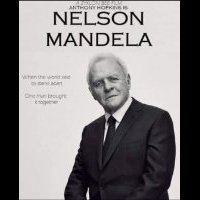Movie Madness
-
Recently Browsing 0 members
- No registered users viewing this page.
-
Topics
-
-
Popular Contributors
-
-
Latest posts...
-
21
Politics Thai Deputy PM Phumtham Reassures Nation: No Coup Plans Amid Political Tensions
We all believe that............. -
7
USA Scenes from “Night of the Living Dead”: Locals Decry Chaos Around NYC Opioid Clinic in NoHo
Presumably this is a democrat run area where the police have been either "defunded" or told to turn a blind eye, Making America "great" again , as usual -
2
Trump Pushing for an Illegal Immigration "Pass" for Ag and Hospitality Workers. Again.
It's cheap labor, which is what Trump wants, in addition to a cheap dollar. Connect some dots. Trump wants non-enforcement of immigration laws for ag and hospitality workers. Why? Although more than a sufficient number of visas are available, employers would be forced to pay legal visa holding workers more money. It also explains why the Republicans, John Thune from a farm state, worked to hoodwink people on the proposal to strip medicaid from illegals. Farm state Republicans want their farmers to put the cost of illegal alien health care onto taxpayers. That's why Thune didn't fight the parliamentarian's stripping of that part of the bill from the BBB. When it's all said and done, the BBB will only have one main element left intact: tax cuts for billionaires. -
51
Crime Indian Tourist Robbed After Beach Encounter in Pattaya
555 !! We have a Regular User of such these places then,Yeah ?? -
16
Parental neglect
The Mother can do what she wants until the kids are 20 years old. Can abandon them by going to a foreign country and you can't do a thing about it.... -
18
Dash cam(motorbike)
Cheers mate, it's all sorted and working, can now download any video plus screenshots. Just come back from drive out, opened the camara and downloaded a few just to watch.
-
-
Popular in The Pub



.thumb.jpg.82631abb512ae61a745d964452c5b1b9.jpg)





.thumb.jpeg.d2d19a66404642fd9ff62d6262fd153e.jpeg)





Recommended Posts
Create an account or sign in to comment
You need to be a member in order to leave a comment
Create an account
Sign up for a new account in our community. It's easy!
Register a new accountSign in
Already have an account? Sign in here.
Sign In Now